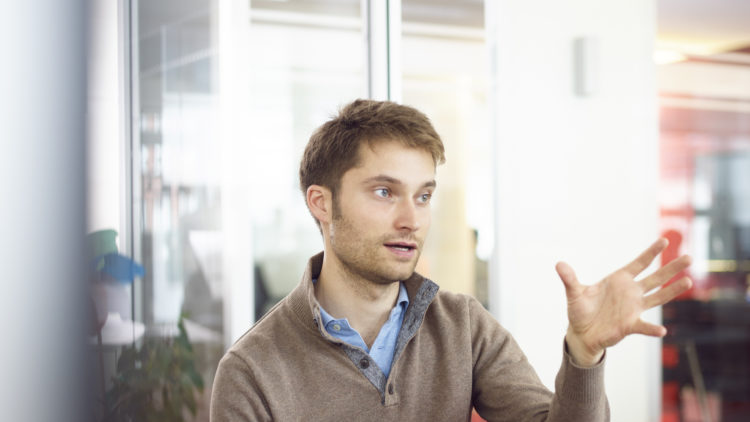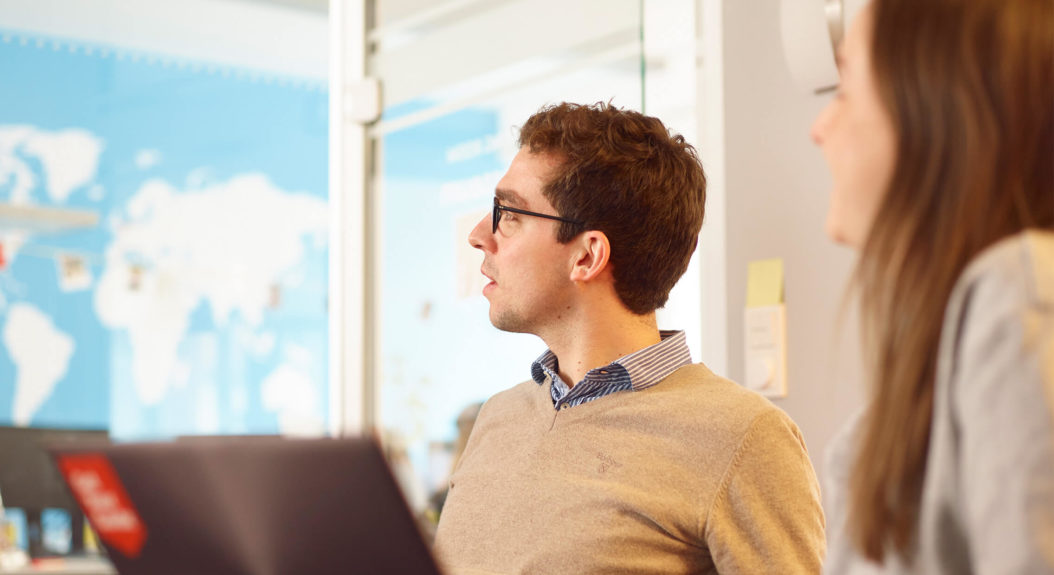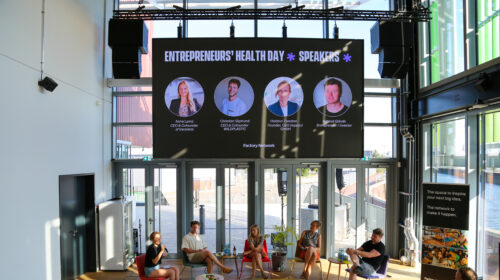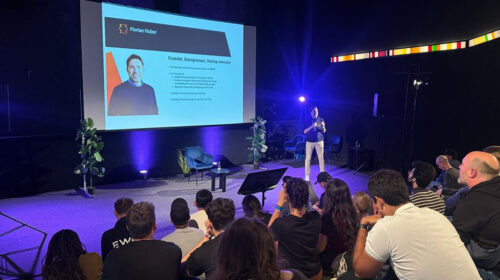
May 2, 2017
Scaling Globally with GetYourGuide
In less than 10 years, Johannes Reck went from studying biochemistry in Zurich to building up a company headquartered in Berlin with over 300 employees and nearly $100 million in funding.
Founded in 2009 by Reck, Martin Sieber, Tao Tao and Tobias Rein, GetYourGuide is a an online platform for finding and booking activities while on vacation. After its first iteration failed, the team went back to the drawing board and relaunched the platform a year later to what it is today. Currently, it offers more than 30,000 activities in some 7,000 destinations around the world. Reck said that the website receives over 10 million unique visitors every month.

“A key thing about entrepreneurship is that it's much more about learning while doing it than about having too much knowledge about it beforehand.”
Having studied biochemistry and neurobiology in university, how did you learn the ropes of entrepreneurship?
On the street [laughs]. None of us had any business background whatsoever which proved to be fairly difficult sometimes. I think a key thing about entrepreneurship is that it’s much more about learning and fast development while doing it than about having too much knowledge about it beforehand. Sometimes knowledge you have beforehand can even block you because you’re stuck on certain concepts or ways of conceptual thinking. The reality in entrepreneurship is that you need to adapt all the time. No single story is 100% true. Every startup needs to reinvent itself.
What was the process like of building up GetYourGuide to what it is now with activities in more than 7000 destinations around the world?
A lot of it had to do with a very strong investment in technology. For us, the suppliers are self-served – they can log in, create and manage offers themselves. This was a huge differentiation from the traditional travel industry which operates very much manually with people, telephones and faxes, etc. With GetYourGuide, we took this radical approach where anything that could be automated was automated. We always hired engineers instead of sales people. However, today we have 10 different offices worldwide and also have a pretty large sales force. But the core towards scaling this was automation.

“None of the VCs in the beginning believed it was possible to build a business worth more than a hundred million euros in Berlin.”
It’s been about 7 years since the company was founded. What were the biggest challenges on the journey?
The biggest challenges we faced were in 2010. The venture ecosystem in Europe looked radically different from what it is today. I won’t say that it’s glorious today, but it’s definitely a lot better. In Switzerland, it was non-existent which is why we moved to Berlin, where it was better but far from ideal. Up until 2012, it was basically impossible for a young unproven team to raise a bigger round of funding. None of the VCs in the beginning believed it was possible to build a business worth more than a hundred million euros in Berlin.
For a long time, cash was a huge constraint in combination with the lack of local talent. Back in 2010 to 2012, Zalando was just scaling up, Rocket Internet was just scaling up, GetYourGuide was just getting off the ground. Very few people in Berlin had done it before who could come in and give good advice on how a business should be scaled. We had to do a lot of trial and error before figuring out what was working. It’s much better today, but I still think it’s one of the biggest challenges facing the European ecosystem. With more clarity on how to build a business, better data tools and more funding, I think we could have saved ourselves 2-3 years.
And what have been some of your most important learnings?
The biggest learning I always try to tell other entrepreneurs is to have relentless focus on one thing and not try to go after too many battles. It’s often easier said than done. In reality, there’s a breadth of things you can do. The key difference between the great entrepreneurs and the good entrepreneurs is that the great entrepreneurs pick one bet and relentlessly focus on that. They say ‘no’ all the time in order to focus on the core goal. Great entrepreneurs will have looked at the bigger picture, but the way they communicate is very single-minded. They always know what the endgame is going to be but they don’t talk about it because in reality the endgame is in 5-10 years. And what you really need to focus on is the here and now.
“Entrepreneurs getting too diluted in their focus early on don't serve anyone.”
A couple of years ago, you wrote about GetYourGuide’s initiative for refugees. How important is it for startups to look beyond business growth?
It depends on how far along the startup is. Quite honestly, for most startups, the best impact they can have on society is to prove their business model and build a sustainable company. Entrepreneurs getting too diluted in their focus early on don’t serve anyone. They won’t be able to help refugees effectively because they’ll be stuck with their startup issues and they won’t be able to help their startup because they’re stuck on focusing on too many different things.
Now at GetYourGuide, we have the resources and capacity to put real money towards causes. It also deeply reflects who we are as a culture. It’s something we can do now that I wouldn’t have done a couple of years ago. Basically, our employees, shareholder base and myself donate larger amounts of money towards very select causes that help refugees who arrive to integrate into society, particularly into the workforce. Our initiatives are very focused efforts that we have on top of the work we do everyday.




